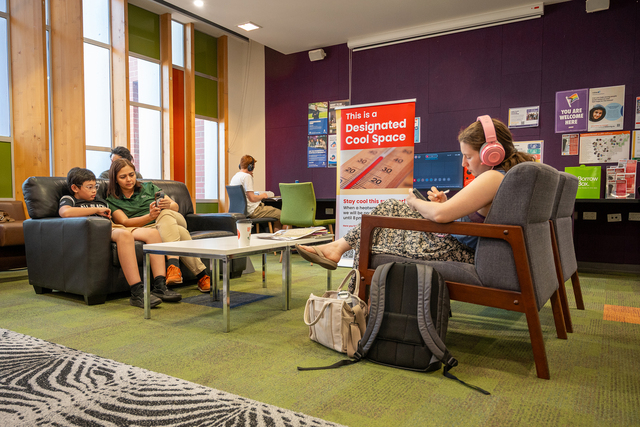The one positive from COVID-19 is the realisation among most of us that material wealth isn’t everything – time to slow down, consolidate and care for those around us.
It’s also a time for reflection on and adjustment to our economic and social policies. Indeed, even hard-line conservatives seem resigned to increased government involvement in the economy. But the disquieting thing is that while there’s plenty of media talk about ballooning budget deficits and the national debt, realistic solutions are scarce.
Last month Treasurer Frydenberg attempted to set the scene by championing the economic policies of Thatcher and Reagan in his 2020 Budget update speech. This is sad at many levels, not the least his apparent ignorance of the critical role of industry and small business policies.
Indeed long-time business journalist Peter Roberts, now with the Australian Manufacturing Forum, says Australia won’t see any significant change in the focus of national policy for manufacturing, or any effort to grow the sector. He observed that Frydenberg’s speech mentioned ‘manufacturing’ three times, but never in the context of any fundamental change of policy direction, or support to boost the sector’s share of the economy, which is down to 6 percent on latest data. Roberts noted that Industry minister, Karen Andrews didn’t even bother putting out a budget media release – it was that irrelevant to her portfolio.
Enter Andrew Liveris
The implications of Frydenberg’s speech is that there won’t be allowance in Budget settings for what comes out of the National COVID-19 Coordination Commission and its manufacturing taskforce led by ex Dow Chemical Chief Executive Officer, Andrew Liveris.
Liveris, born in Darwin, now splits his time between Sydney and the United States. His book ‘Make it in America’, published in 2011, made a call for a renewal of manufacturing in America and against outsourcing. His book continues to command attention because of China’s trade and political antics, and not surprisingly Donald Trump waxes lyrical about Liveris’ argument that by outsourcing manufacturing, you’re also outsourcing the related businesses in the value chain, thus losing lots more jobs than just the manufacturing jobs alone. In this regard, Liveris argues that manufacturing and R&D are often strongly linked, so a decline in manufacturing will also harm innovative capabilities, which leads to further downfall. This causal link is well known, and my colleagues in the industry/technology area of the OECD have been arguing this for decades.
Liveris put forward specific policy recommendations to the United States government that now have resonance nine years later here. First, the need to improve infrastructure and to establish a National Economic Framework where government is an integral player with business viz. harmonising and simplifying rules, accelerating planning and building approvals processes and benchmarking regulations against competitors. As the effects of the coronavirus deepen, these sorts of policies are now being talked about in Australia.
Secondly, Liveris argued for policies of a longer-term nature, focusing on improving workforce competitiveness by revitalising education and in the workplace itself via innovative, competency-based job training. Taking the argument a step further, Liveris supported the need to create products reflective of 21st Century competitiveness with a particular emphasis on green jobs, and to create new sources of energy and revenues not on the horizon. Well that’s certainly interesting given the hype about hydrogen as the new wonder fuel, coupled with press reports about Liveris’ likely push for Australia to embrace a major program of on-shore gas distribution and associated pipelines.
Manufacturing Statement
The upshot of the above is that the Morrison Government will have some sort of manufacturing statement later this year. But Frydenberg’s recent channelling of Thatcher/Reagan and the inherent dryness of national economic policy suggests that whatever Liveris recommends may get short shrift.
However, I sense a growing realisation among industry leaders that Treasury thinking must not dominate our recovery effort. I suspect that Liveris, being the consummate networker, would be searching for business leaders to support his policy prescription to the Morrison Government. In a recent interview, Liveris talked about the sad exit of our car industry, and called for Australia to build competitive advantage in health, defence, cyber, natural gas, renewables, agriculture equipment, environmental technologies and food. All good stuff, and this could form the basis of the Manufacturing Statement.
From our vantage point, the Manufacturing Statement should include a major federal program around global chain development, given the fractures being caused by the coronavirus. A strong Buy Australia initiative is also needed, as is a program to value-add our minerals and agriculture product. Local councils in manufacturing and mining regions are encouraged to get involved in these debates because Morrison is showing signs of embracing a collegiate spirit beyond the Treasury orthodoxy.
Regional development policy?
We’re hearing nothing on the regional development front. The murmurings are that the Budget deficit will basically close off anything to replace the current Building Better Regions (BBR) program which still has a couple of years to run. The view among certain states that regional development is properly their domain could ensure that the feds will indeed pull back.
There are other windows besides the BBR program. For example, we’re getting traction with the concept of Federal support for our regions building one-on-one links with counterparts in India, Thailand, Indonesia etc. to balance China’s emerging role. Please contact us if this interests you.
Rod Brown is a Canberra-based consultant and lobbyist specialising in industry/regional development, investment attraction and clusters, and accessing federal grants. He also runs the Cockatoo Network.
Phone: (02) 6231 7261 or 0412 922 559
Email: apdcockatoo@iprimus.com.au
















